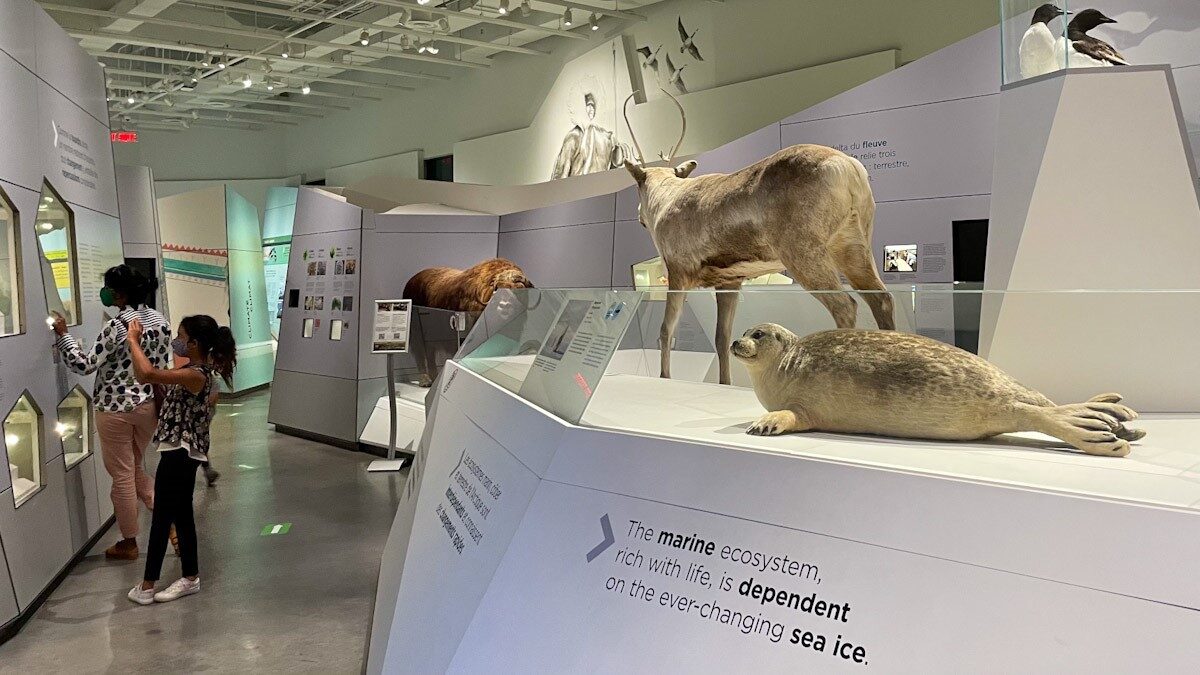Many businesses across Ontario started checking for proof-of-vaccination on Wednesday as the province’s vaccine certification system came into effect. But museums in the national capital will not be asking visitors to prove they’re double-vaccinated before entering their exhibitions and galleries.
A spokesperson with the Ontario Ministry of Health explained that the risk of transmission in art galleries and museums is low.
“There is typically space for individuals to physically distance, individuals tend to move around the facility as opposed to remaining in one place for longer periods of time, and face coverings can be worn at all times,” the spokesperson wrote in an email.
But there is one caveat. The Canadian Museum of Nature on McLeod Street in Centretown announced this week that proof of vaccination will be required for its indoor eating area. The Canadian War Museum, located at LeBreton Flats, has a similar policy.
“There is typically space for individuals to physically distance, individuals tend to move around the facility as opposed to remaining in one place for longer periods of time, and face coverings can be worn at all times.”
— ONTARIO MINISTRY OF HEALTH SPOKESPERSON, ON MUSEUM EXHIBITIONS AND VACCINE PASSPORTS
Angeline Laffin, director of visitor experience at the Canadian Museum of Nature, said museums are vital institutions. “Museums are looked at as more a leisure or an attraction, but we are an essential centre for education and learning, as well.”
The provincial vaccine program requires that anyone 12 and over looking to access non-essential venues in the province show proof of full COVID-19 vaccination. In the guidelines released by the Ontario Ministry of Health last week, museums and cultural institutions are not on the list of facilities requiring a vaccine receipt.
So except for dining areas, visitors complying with COVID-19 safe-distancing rules are free to roam museum spaces.
“The guidelines are pretty clear that any area indoors where you have to remove your mask to eat or drink, that’s what needs a vaccination check,” said Laffin.
Provincial guidance explicitly lists indoor areas with food and drinks as places where proof must be shown. Laffin added that the museum wants to be very sure that it’s complying with all provincially mandated public health policies.
Across the Ottawa River in Gatineau, Que., the Canadian Museum of History has implemented a similar policy since Quebec’s vaccine passport system kicked in on Sept. 1.
“Museums are looked at as more a leisure or an attraction, but we are an essential centre for education and learning, as well.”
— Angeline Laffin, director of visitor experience at the Canadian Museum of Nature
Unlike in Ontario, the Quebec guidelines clearly state vaccination is not required to access museums. But Sarah Woods, director of corporate security and visitor services at the Canadian Museum of History, said the Quebec government also made it clear that vaccination was required for the museum’s theatre and cafeteria.
According to Woods, there’s been no confusion about why vaccination is checked in some areas and not others.
“We’ve done our best to communicate to all of our visitors ahead of time where they will need to show proof and we have additional signage on site and reminders from our staff, so it’s been going very well over the last couple of weeks,” said Woods.
She said the experience with Quebec’s vaccine passport system at the museum has made implementing the program at its sister organization, the Canadian War Museum, very straightforward. “We were able to take what we did at the Canadian Museum of History and take all that knowledge and then apply it to the Canadian War Museum.”
“For example, reminding people to have their vaccine proof so that you have that ready when you get to the doors (of the cafeteria) helped streamline the process for everyone,” explained Woods.
For Laffin, there may be some initial confusion among visitors. “But Ottawa has a very high rate of vaccination to start with, so we’re hopeful things will go well.”




